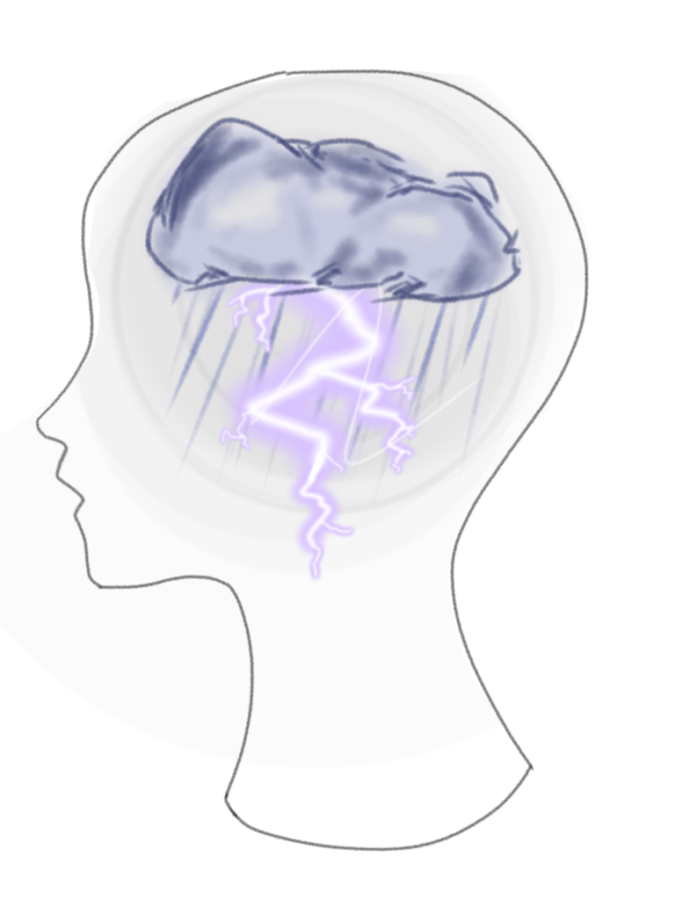MCPS fails to provide mental health care for non-English speakers
According to Centro SOL, using untrained translators in therapy sessions—such as family members—could carry bias against the patient.
February 23, 2023
Montgomery County Public Schools (MCPS) has been put under fire by professionals investigating the lack of adequate mental healthcare for immigrant youth and non-English speakers. MCPS has increased its focus on mental health in the aftermath of the COVID-19 pandemic, with the county employing counselors and implementing mental health resources in schools to support students.
Students have faced demanding homework and increased stress ever since coming back to the classroom. A U.S. National Survey indicated that 63.5 percent of students reported that COVID-19 has worsened their life in some way. At the same time, there has been a spike in the number of students with mental health issues like depression, anxiety and bipolar disorder. According to the CDC, in 2021, over 42 percent of students felt persistently sad or hopeless and 29 percent experienced poor mental health.
However, MCPS is not providing mental health services for students whose preferred language is not English. MCPS has hired several counselors and medically trained professionals to counteract the rising cases of mental disorders. However, according to Maryland Matters, “mental health professionals claim they do not have enough funds to provide widespread services to the growing population of non-fluent English speakers who need mental health care.”
“It’s really not that surprising even though it’s extremely unfortunate,” freshman Elena Morell said.
Students view it as a violation of equal opportunity. “I think that it’s unfair because everyone should have the same opportunities,” freshman Jahnavi Sabnis said. “I think that it really harms [students] because if their mental health isn’t being treated as something that is worthwhile then they think they aren’t acceptable.”
A study by Centro SOL, an affiliate of Johns Hopkins University, evaluated three study cases to show the effects of a lack of mental health services.
The first case analyzed a situation where a behavioral therapist refused to care for a 16-year-old with mental health issues because her primary language was not English. The second case study was of a 15-year-old who was recommended therapy but denied help because her mother spoke Spanish. The final case study was on a social worker who discovered that non-English speakers were put on waitlists for mental health care access.
“Without consistent and timely access to language assistance services in mental health settings, patients with limited English proficiency are unjustly blocked from experiencing long-term mental health recovery,” lead attorney for the Public Justice Center’s Health and Benefits Equity Project Ashley Black told Maryland Matters.
According to the Civil Rights Act of 1964, which forbids discrimination against people from foreign nations of origin, MCPS is not allowed to bar access to mental health services for immigrant youth. The Affordable Care Act of 2010, which prohibits “health programs or activities including mental health professionals from discriminating based on race, color, sex, age, disability, or national origin,” is another example of legislation that MCPS has disregarded.
In the same study by Centro SOL, the Public Justice Center and Centro SOL suggested five recommendations towards achieving equal mental health care access. Some suggestions mentioned how“[m]ental health providers should have a language access plan and policy” and “[t]he state should provide public education on the right to interpretation and translation services.”
The RM community proposed solutions for the issue as well. “I think they should provide more translatable things and have people there to help people who don’t speak English so they don’t struggle in school and their social life,” Sabnis said.
“I think that making sure that at least one counselor at every school speaks Spanish, and that there’s counselors and staff members speaking a variety of different languages being there to support students’ mental health [will counteract the issue],” Morell said.
Overall, RM students still believe that MCPS will be able to mend the issue of mental healthcare disparities. “I think that being more aware of this issue will definitely be more helpful,” Morell said.



